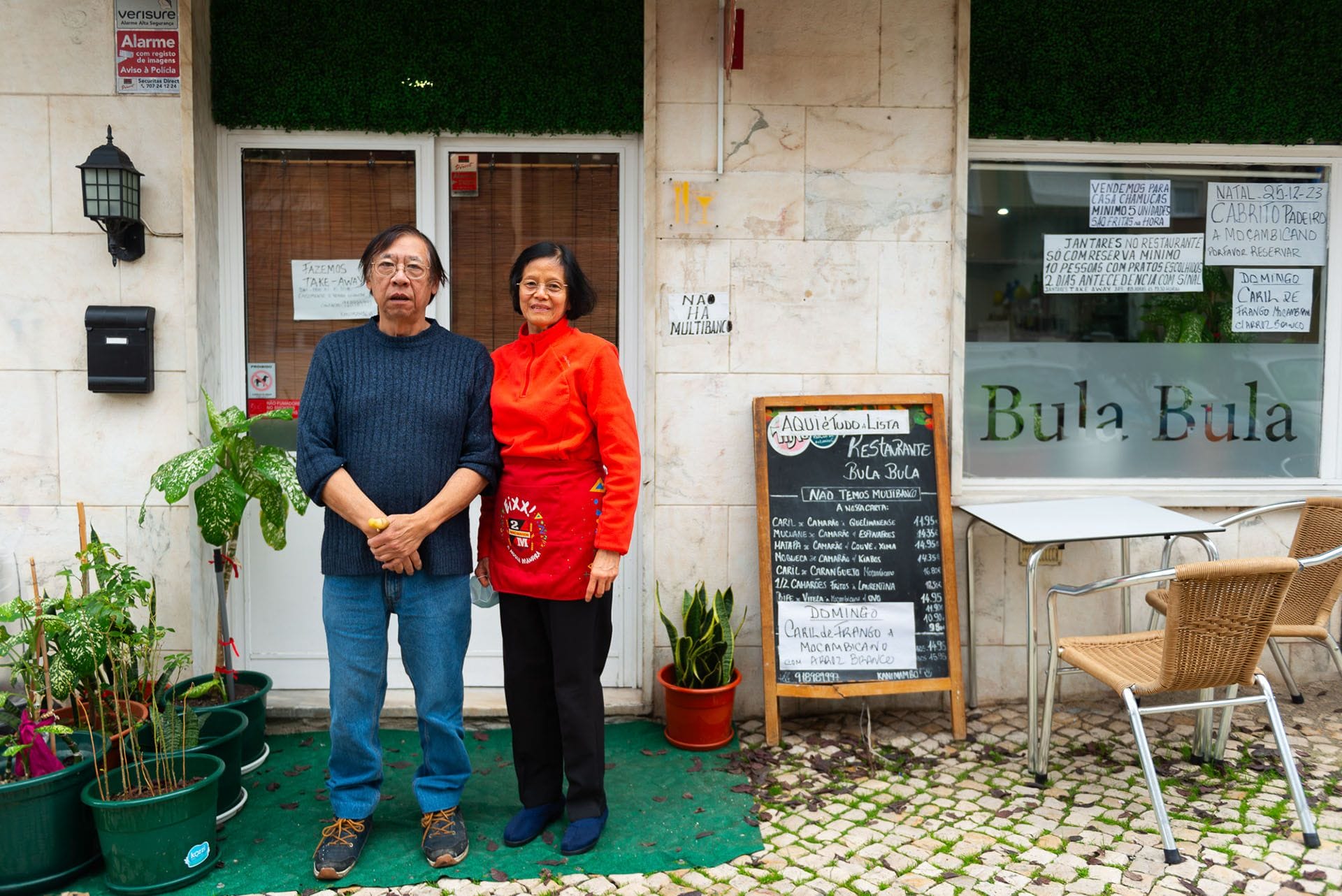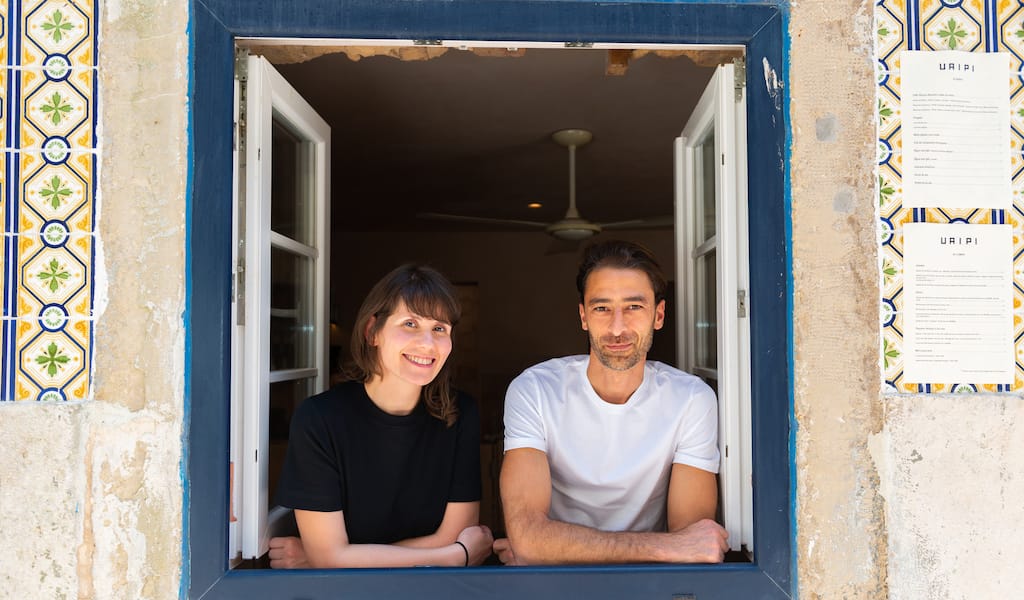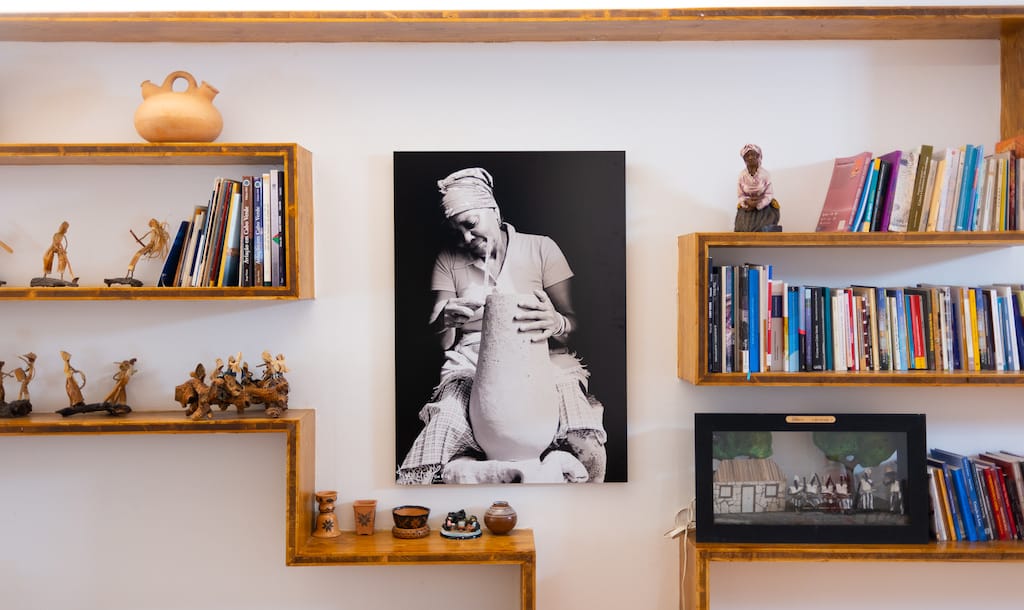Mozambican, Portuguese and Cantonese – with a fair bit of Indian thrown in. On the surface, it’s an utterly unlikely culinary mashup. But it makes perfect sense at Bula Bula, a restaurant on Lisbon’s northern outskirts.
The husband-and-wife owners of Bula Bula, Ana Lee and Fernando Ho, are ethnic Chinese who can trace their ancestry back to China’s Guangdong (formerly Canton) Province and then to Macau, the latter of which was, for more than 500 years, a Portuguese colony. At some point (nobody remembers when), both Ana and Fernando’s parents emigrated to Mozambique, also a former Portuguese colony, which is where the pair were born.

Fernando describes Lourenço Marques, as Mozambique’s capital was then known, as having a community of 7,000 to 8,000 Chinese people with Chinese-language schools, Chinese cultural centers and a Chinese movie theater.
“My parents insisted that we speak Chinese,” he adds.
In 1975, after a nearly decade-long, bloody struggle for independence, Mozambique rejected colonial rule, subsequently expelling many non-Africans. Ana and Fernando were forced to leave their homeland, ultimately settling in Portugal.
“We’re Chinese but from Mozambique. And we’re Portuguese,” Ana tells us on a recent visit to their restaurant north of Lisbon. “We’re multicultural!”

And the menu at Bula Bula reflects this. The bulk of the restaurant’s dishes are from Mozambique, but this country’s gastronomy has been greatly influenced by centuries of trade with and immigration from India. As such, an obligatory starting point is the chamuça caseira à moçambicana, “house-made Mozambican-style samosas.” A thin, flaky dough surrounds a fragrant filling of minced beef that’s heavy on coriander seed and turmeric. They’re paired with a chili sauce that’s vinegary rather than spicy. Ana is keen to remind us that the samosas are fried to order, and indeed they come out piping hot, easily some of the best in town.

Other Indian-influenced dishes at Bula Bula include mild, fragrant, coconut milk-based curries such as caril de caranguejo moçambicano, a crab curry (“Eat it with your hands – it tastes better!” Ana tells us), and occasionally as a special, caril de frango, chicken curry. The house dessert, bebinka baseira, a spice-forward, layered cake that takes hours to prepare, also can most likely be traced back to Goa, India.

The restaurant leans more towards Mozambique’s African side via a handful of predominantly soupy dishes that take advantage of the country’s abundant seafood. Our favorite of these is matapa de camarão com couve, a stew-like dish thickened with crushed peanuts and supplemented with shrimp and spinach, the latter of which is used in place of more traditional kakana (a leafy green also known as momordica balsamina).

“Portuguese people don’t like the taste of kakana; it’s sour,” says Soraya, the couple’s daughter. Although she and her sister, Verónica, have their own non-restaurant careers, they pitch in and cook on weekends. They pair matapa with xima, a thick porridge made from white cornmeal, a staple carb in Mozambique.
The menu also dips into the cuisine of another former Portuguese colony, Angola. Moqueca de camarão com kiabos is an almost currylike coconut milk soup supplemented with prawns, okra and unfiltered palm oil, and served with rice. It’s a dish that ended up in yet another former Portuguese possession, Brazil. And with advance notice, Fernando will make moamba de galinha, a rich chicken stew also from Angola.
Perhaps the menu item that best exemplifies Bula Bula’s eclectic cultural mix is the bife de vitela à moçambicana, “Mozambican-Style Veal Steak.” Pounded thin, served with a sauce, topped with a fried egg and paired with French fries, at a glance, the dish is a dead ringer for a bitoque, Lisbon’s beloved steak dish. But that sauce is made from coconut milk, not olive oil, and is seasoned with soy sauce, not salt, and everything is fried in a wok, not a frying pan. In our opinion, it’s the best bitoque in town that isn’t actually a bitoque.

It’s a fascinating menu, yet arguably the best day to visit Bula Bula is on Sunday, when Fernando and Ana serve one or two dishes outside of the normal lineup – sometimes a meat-and-potatoes (or fish-and-potatoes) Portuguese dish, but occasionally an item from their ethnic homeland in southern China. On one of our visits this was chau mim de frango à cantonesa, round wheat noodles fried with chicken, broccolini, peppers, seaweed, vegetables and mushrooms. Mild, with hits of sweet, sour and salty, it reminded us of Chinese-American food – yet another deliciously mixed-up cuisine that links continents and cultures.
Austin BushAustin Bush
Published on February 23, 2024
Related stories
June 21, 2024
LisbonIt’s a bit of culinary magic. Plain old black-eyed peas are transformed into a fluffy white cloud, before somehow changing once again, this time into a crimson, crispy fritter. This is acarajé, and as a dish with origins in Bahia, the homeland of Afro-Brazilian spirituality, other types of magic can also play a role. In…
July 13, 2023
LisbonWe’re in a small café in Lisbon’s Madragoa neighborhood, and all of the disparate dishes loading down the table in front of us – small bread-like balls, a dish that resembles a small crepe, granola studded with flakes of grains, a pudding-like dessert – have one ingredient in common: cassava. “Cassava is known as the…
June 22, 2023
LisbonOne of the joys of Lisbon’s food scene is the access it allows to cuisines from across the Lusophone world. And one of the most represented is the food of Cabo Verde (formerly known as Cape Verde), an archipelago of 10 islands off the western coast of Africa. Its ubiquity is due to immigrants from…























































































